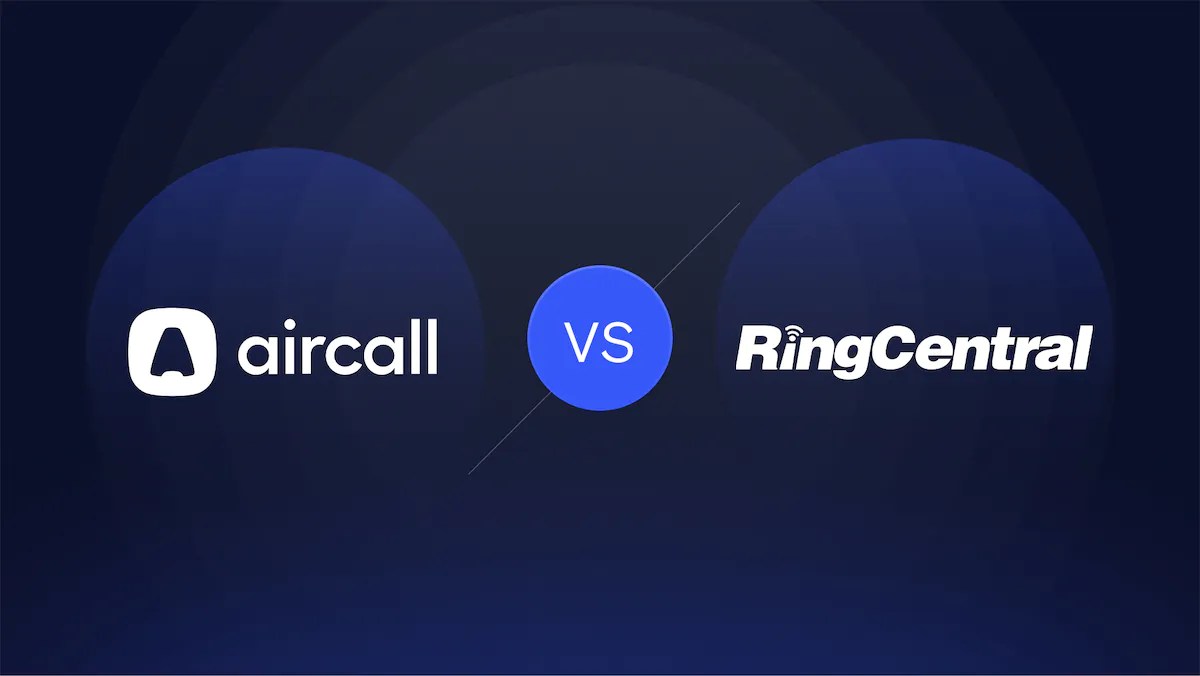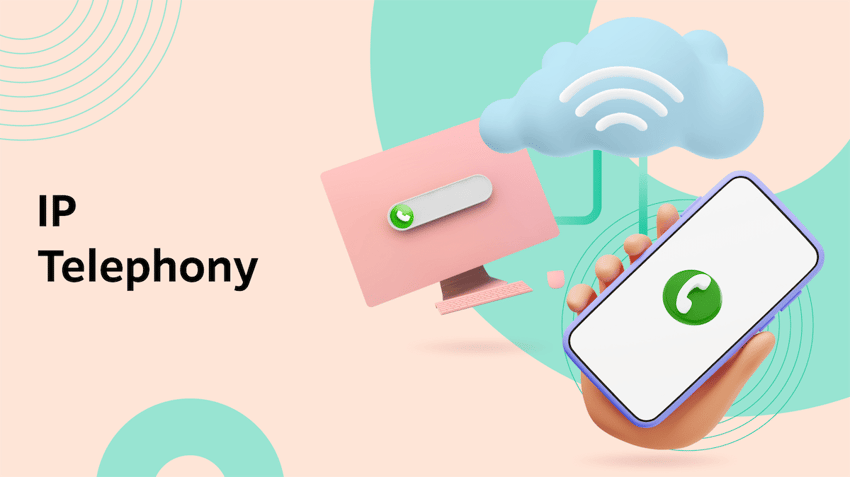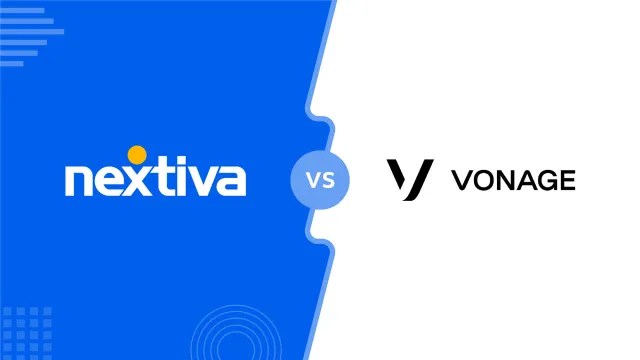Deciding between Aircall and RingCentral for your business contact center? It’s a key decision, and you want to get it right. Both are popular platforms, but understanding how they differ is essential to pick the one that best fits both your team’s current needs and future goals.
This comparison gets straight to it: we’ll break down Aircall’s and RingCentral’s features, weigh the pros and cons, and help you clarify which solution is the optimal choice. Plus, to give you a complete picture, we’ll also see how they measure up against Nextiva, a leading contact center solution in the field.
Aircall vs. RingCentral Feature Comparison
Before diving in, here’s a quick overview of what Aircall and RingCentral bring to the table for business communications.
| Feature | RingCentral | Aircall |
|---|---|---|
| Core offering | Unified Communications (UCaaS) with a separate Contact Center (CCaaS) offering | Cloud Call Center & Business Phone System |
| Best for | Small to Enterprise (UCaaS); Mid-Market to Enterprise (CCaaS) | Small to Medium Businesses, Sales/Support Teams |
| Pricing | Tiered subscriptions (per user/month) | Tiered subscriptions (per license/month) |
| Starting price | $20/user/month | $30/license/month |
| Ease of use (G2) | 8.6 | 9.1 |
| Ease of setup (G2) | 8.1 | 8.8 |
| Quality of support (G2) | 7.9 | 8.5 |
| IVR/auto-attendant | ✅ Multi-level | ✅ Customizable |
| Call recording | ✅ On-demand & automatic | ✅ Included in all plans |
| Call queuing | ✅ Advanced options (especially in CCaaS) | ✅ With call distribution rules |
| Voicemail-to-email | ✅ | ✅ |
| Team collaboration | Fully integrated (team messaging, file sharing) | Basic (team assignments, comments on calls; needs integrations for advanced chat) |
| Video conferencing | Robust (up to 100-200 participants, HD quality) | Basic (up to 5 participants, simpler features) |
| Omnichannel support | Voice, SMS, video, team chat, fax, email (contact center) | Voice, SMS, MMS, email, web chat, limited social integration (via apps) |
| Key integrations | 200+ apps (Salesforce, Microsoft 365, Google), Developer Platform | 100+ apps (Strong focus on CRM/helpdesk: Salesforce, HubSpot, Zendesk) |
| Analytics & reporting | Comprehensive analytics (especially contact center), customizable reports | Detailed call analytics, agent performance, live feed |
| Reliability (uptime SLA) | 99.999% | 99.95% |
| Screen pops | Basic (caller ID for UCaaS); Advanced with CCaaS | Customer details, call context via CRM integration |
| 24/7 customer support | ✅ | No 24/7 standard support. AI chatbot support is available 24/7. |
| Global reach | Extensive global office presence and international numbers | Good international number availability |
| Annual discount | ✅ | ✅ |
How we compared Aircall and RingCentral
To provide you with a clear and practical comparison of Aircall and RingCentral, we gleaned insights from:
- Publicly available information: Reviewed materials from the official Aircall and RingCentral websites, including product feature lists, service descriptions, and available documentation.
- Real-world user experiences: Insights from user ratings and reviews on reputable third-party platforms such as G2, Capterra, and TrustRadius helped us measure real-world satisfaction with ease of use, customer support, reliability, and overall value.
- Industry expertise: Our in-house knowledge of the UCaaS and CCaaS helped us identify key differentiators and common considerations for businesses.
We focused on crucial aspects such as core features, communication channels, integration options, pricing models, user-reported pros and cons, and the quality of customer support to provide you with the most important information to make an informed decision.
Aircall vs. RingCentral: The Pros
Both Aircall and RingCentral bring a compelling feature set to the table, catering to diverse business needs. Let’s examine their standout advantages.
Pros of Aircall
Aircall has gained popularity as a business communications and call center software solution thanks to its user-friendly design and versatile feature set.
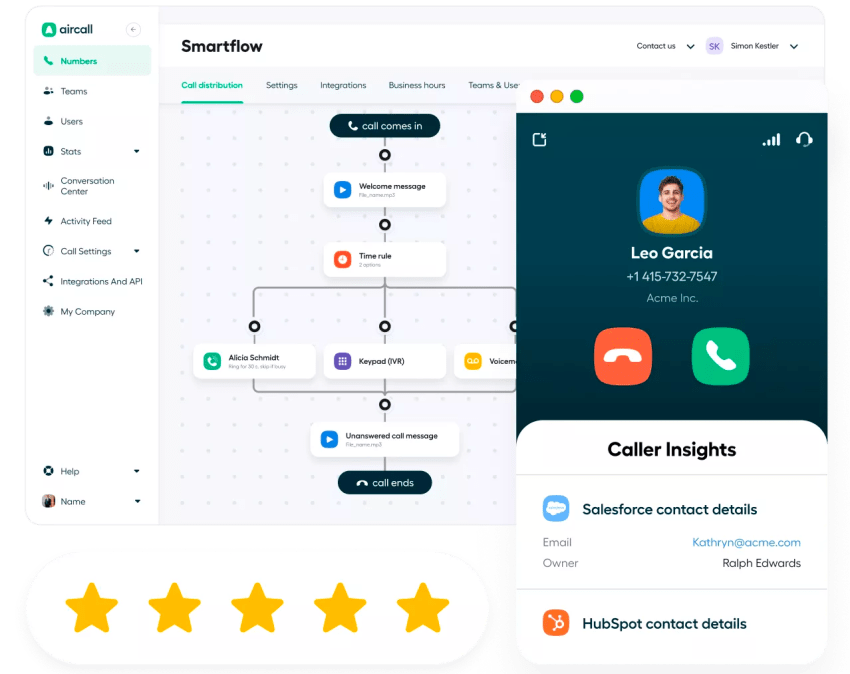
Its key advantages include:
- Simplicity and flexibility: Aircall is widely praised for its ease of use and adaptability to various business requirements. Its intuitive interface streamlines navigation and enhances usability for agents and administrators.
- Over 100 integrations: Aircall boasts extensive collaboration features with popular business tools, from CRMs to helpdesks, ensuring seamless workflows and data synchronization across platforms.
- Advanced analytics: Aircall provides detailed insights into call handling and agent performance metrics, empowering businesses to optimize operations and drive productivity improvements.
- Comprehensive call center tools: Aircall offers a robust feature set, including customizable interactive voice response (IVR) menus, call queuing, tagging, call whispering, and real-time call center analytics to enhance team efficiency and customer satisfaction.
- Minimal setup and dedicated support: Aircall’s strengths include an easy onboarding process with minimal setup requirements, complemented by dedicated account managers who provide personalized support.
Pros of RingCentral
While Aircall focuses on core contact center capabilities, RingCentral distinguishes itself as a comprehensive unified communications platform.
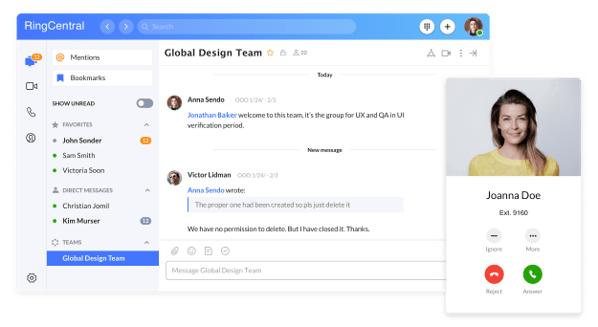
Its strengths include:
- Comprehensive UCaaS features: RingCentral offers excellent UCaaS offerings and provides a comprehensive suite of tools for document sharing, team messaging, and high-definition voice calls.
- Extensive integrations: With support for over 200 platforms and API access for custom integrations, RingCentral seamlessly blends into a company’s existing technology stack.
- Seamless video conferencing: RingCentral supports enterprise-level virtual meetings with a wide range of video conferencing capabilities, ensuring high-quality audio and video experiences.
Aircall vs. RingCentral: The Cons
While each phone system has compelling advantages, they each have some drawbacks.
Cons of Aircall
Despite the strengths, some users look for alternatives to Aircall for several reasons. Here’s a detailed user review that sums up the challenges users face with Aircall.
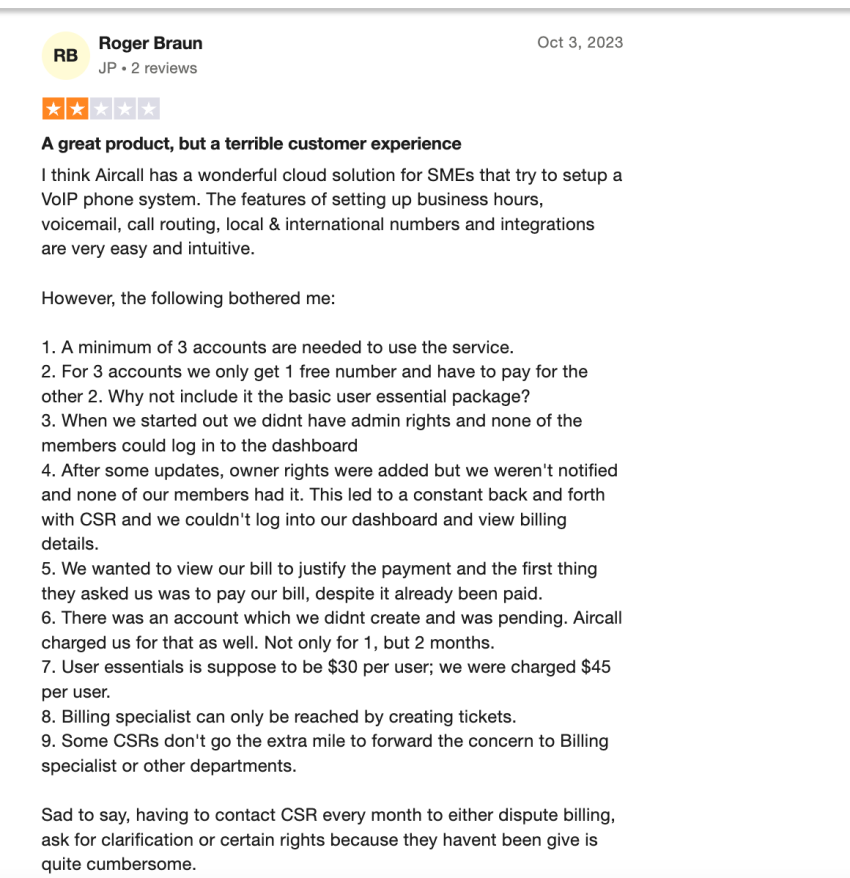
Common Aircall complaints include the following:
- Learning curve: Some new users initially find Aircall’s call log system and some advanced features less than intuitive, presenting a slight learning curve.
- Limited customization: Users have reported that Aircall’s customization options can be limited, particularly when tailoring specific features to nuanced business processes.
- Inconsistent call quality: Aircall users have also reported inconsistent call quality, including dropped calls and poor clarity, which can negatively affect customer communications.
- Scalability for enterprise: As businesses grow or their needs become highly complex, they may find Aircall lacks some of the advanced enterprise-grade features found in more comprehensive UCaaS platforms.

I don’t like that a lot of features are locked behind premium packages even though other services include them in the basic package such as live call monitoring and visibility to see time online.
Nicole B.
Cons of RingCentral
Similarly, RingCentral users have also reported several issues with the platform.
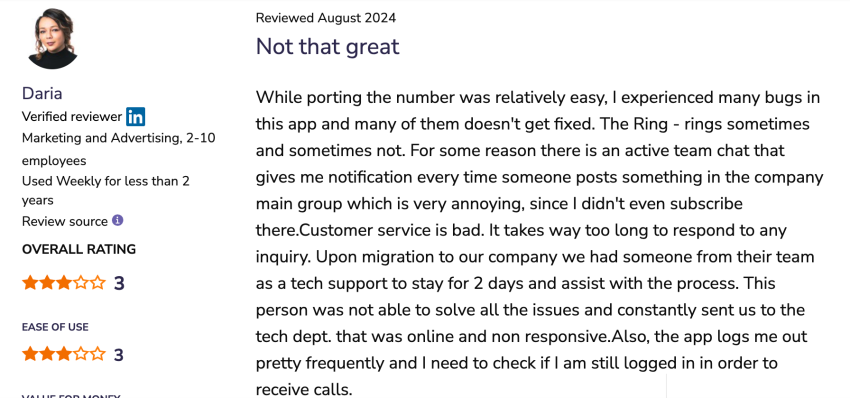
Common RingCentral complaints include the following:
- Pricing concerns: While RingCentral offers robust features, its pricing can be on the higher side, especially for smaller businesses or those requiring many add-ons. This might make budget-conscious companies hesitate.
- User experience issues: Some user reviews have reported user experience glitches, such as delays between dialing and information display, impacting call handling efficiency.
- Update frequency: Frequent software update notifications have been mentioned as an inconvenience by some, potentially disrupting workflows if not managed.
- Complexity for simple needs: For businesses needing only basic call center functionality, RingCentral’s extensive UCaaS features might be overwhelming or represent paying for unused capabilities.
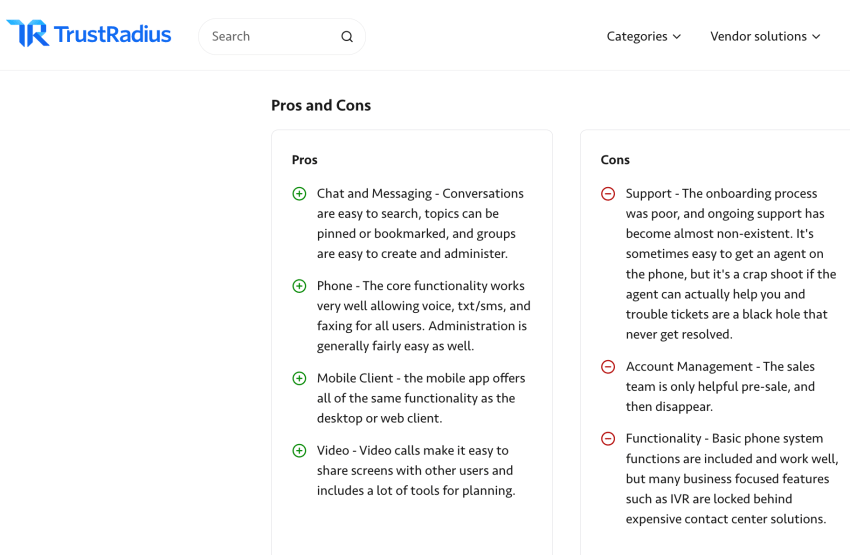
Aircall vs. RingCentral: A Closer Look at Key Differences
Having discussed the pros and cons, let’s see how Aircall and RingCentral stack up against each other in crucial areas like features, reliability, support, and scalability. This will help clarify which platform better suits your business needs.
Features
When it comes to features, Aircall and RingCentral cater to different priorities. Aircall is recognized for its robust call center tools and straightforward integrations, particularly with CRM and helpdesk software. It’s designed to enhance call handling and agent productivity. However, for large businesses with highly mature or complex enterprise-wide communication needs, Aircall might fall short of being an all-encompassing solution.
RingCentral, in contrast, is an extensive unified communications platform. It offers a broader suite of communication tools beyond core call center functionalities, including team messaging, video conferencing, and file sharing. While this extensive feature set is a plus for businesses seeking a comprehensive solution, it can also contribute to a higher overall cost and, as some users note, potential complexities or user experience issues that might make it a more considered choice.
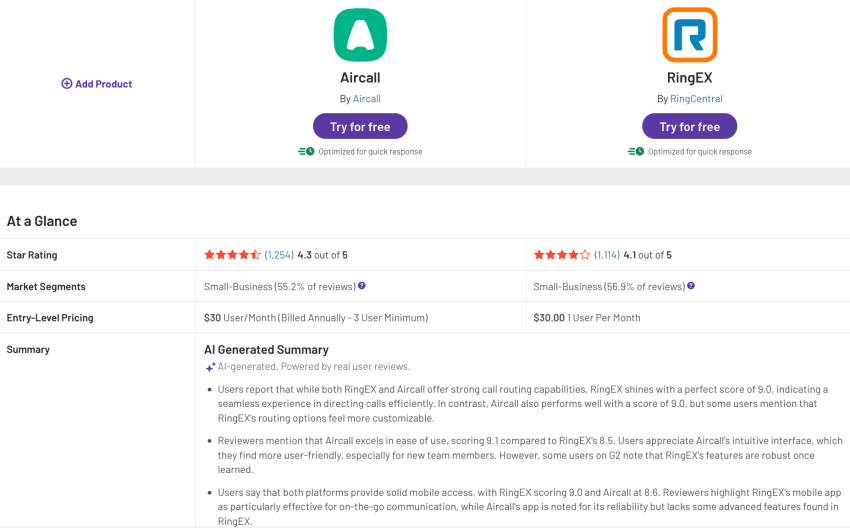
Reliability
User feedback for Aircall indicates occasional call quality issues, such as dropped calls or poor audio clarity, and some have reported challenges with the stability of its integrations.
RingCentral users, while experiencing good uptime, have sometimes expressed concerns regarding the frequency of software updates and occasional system performance issues, like delays between dialing and information appearing on the screen, which can impact workflow efficiency.
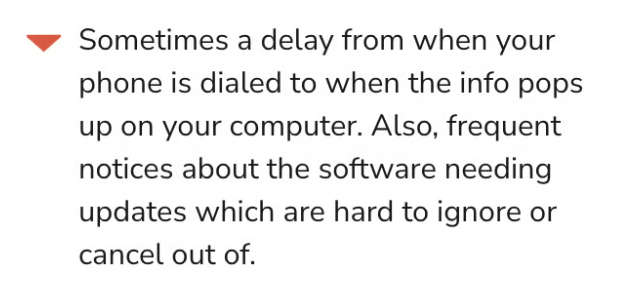
Support
The quality and accessibility of customer support can significantly impact user satisfaction. Aircall’s support receives mixed reviews from users; while some appreciate the availability of dedicated account managers, others report inconsistencies in response times or issue resolution.
“Reviewers mention that while both platforms offer good support, Aircall scores higher at 8.5 compared to RingEX’s 7.9. Users appreciate Aircall’s responsive customer service and extensive knowledge base, while some RingEX users report longer wait times for support queries.
RingCentral users have also reported varied experiences, with some finding it challenging to receive timely or adequately personalized support, especially for more complex technical issues within the broad platform.
Scalability
Both Aircall and RingCentral are scalable solutions, capable of growing with a business. However, the nature of their scalability and the associated costs can differ.
As businesses expand, they might find that scaling with either platform introduces new challenges. For Aircall, this could be limitations in advanced features needed at a larger scale. For RingCentral, scaling can involve incurring additional costs for more advanced tiers or specific features, and managing a more complex array of services as user numbers increase.
For both, you need to consider future needs, their respective platform architectures, and pricing models to make sure they accommodate your business needs.
Key Takeaway: Aircall or RingCentral — Which Should You Choose?
Choosing between Aircall and RingCentral comes down to your business size, needs, and priorities.
Choose Aircall if:
- Your primary need is a dedicated, user-friendly call center solution with strong CRM and helpdesk integrations.
- You prioritize ease of setup and a straightforward interface for your agents.
- You operate a small to medium-sized business where call management is central, but you don’t necessarily need an all-encompassing UCaaS platform.
- You value dedicated support and a quick onboarding process.
Choose RingCentral if:
- You’re looking for a UCaaS platform that goes beyond just call center features, including robust team messaging, video conferencing, and file sharing.
- Your business requires a vast number of integrations.
- You need enterprise-grade video conferencing capabilities.
- You’re a medium to large business that can leverage and afford its extensive feature set, and manage a more complex system.
Both are capable solutions, but Aircall leans toward specialized call center functionality with simplicity, while RingCentral offers a broader, more feature-rich unified communications suite that might be more complex and costly.
Considering an Alternative? Why Nextiva Could Outrank Both
While Aircall and RingCentral are solid solutions, Nextiva strategically addresses their potential weak spots, offering a complete UCaaS and CCaaS solution renowned for exceptional functionality, a comprehensive feature set, and stellar customer support.
With Nextiva, your contact center benefits from powerful tools like:
- Advanced call routing & IVR: Optimize call management, reduce wait times, and provide professional automated experiences.
- Call recording, monitoring & whisper coaching: Enhance agent training and quality assurance effectively with robust call center phone system features.
- Deep CRM integrations: Seamlessly connect with Salesforce, HubSpot, Zendesk, and more, keeping customer data at your agents’ fingertips.
- HD video conferencing & screen sharing: Facilitate effective remote collaboration.
- AI-powered analytics & insights: Understand performance trends and improve customer interactions.
What users say about Nextiva:
Don’t just take our word for it. Here’s what actual users are saying:
- I like that Nextiva is HIPAA compliant and can be easily done online. All the UI’s are easy to understand and use. If something is tricky, their support team is quick to answer. I like that there is more control on the user end than having to always call support to implement a change. — Helen C. Bookkeeper
- We have been through a few online phone systems, all have their pros and cons, but Nextiva has by far been the best we have used. The online system portal allows me to manage my call flow very easily. I can have the system on multiple base phones, and if something goes wrong, customer service has always been there to fix it very quickly and easily. It was easy to merge our systems without any extra hassle. — Celeste T.
Nextiva’s reliable infrastructure and dedicated customer support teams ensure your communication needs are consistently met, no matter how rapidly your business grows. Whether you’re a startup, a small business, or an enterprise, Nextiva offers a scalable, feature-rich, and user-friendly solution.
You’ve found the ultimate contact center.
See how Nextiva transforms the sales and support team productivity.
Frequently Asked Questions (FAQs)
Both RingCentral and Aircall are cloud-based communication platforms offering core call center features like IVR, call recording, and analytics. They both emphasize integrations with business tools (especially CRMs) and use tiered, per-user/license subscription pricing.
Aircall appeals to businesses that need a user-friendly, cloud-based call center solution with powerful CRM integrations for sales and support teams. RingCentral offers a more complete UCaaS platform with richer features (such as video, messaging, and fax) and a separate, advanced contact center solution, suited to larger companies with diverse communication needs. Price and complexity can also be important differentiators.
Yes, Nextiva is an excellent alternative. It’s an integrated UCaaS and CCaaS platform that outperforms Aircall in feature depth and RingCentral in terms of overall value, ease of use for its full suite, and consistently high-quality customer support.
Nextiva has transparent and scalable pricing that provides better overall value, especially when considering the breadth of features in its unified platform and the quality of support included. While Aircall and RingCentral have varied tiers, Nextiva’s plans offer complete solutions without hidden fees, making it more cost-effective as businesses scale or require more advanced features.


















 VoIP
VoIP 

